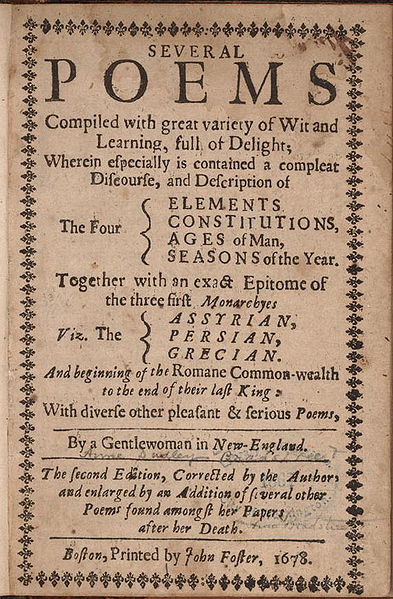Morris Sweetkind’s article “Poetry in a Scientific World” offers a different view on why poetry is still relevant to a society engulfed by technological advances.
 |
| Author: John Forster, 1678. Source: Library of Congress via Wikimedia Commons |
Some of Sweetkind’s main points include the importance of poetry in curriculum. While it is true that many students do not see poets at the helm of society (primarily it is politicians and engineers), poetry has a place in education because it can teach things that science cannot. Sweetkind outlines the four components of a healthy individual that the writer Matthew Arnold once spoke of:
(1) the power of conduct;
(2) the power of intellect and knowledge;
(3) the power of beauty;
(4) the power of social life and manners
In excluding poetry in the sole pursuit of scientific query, Sweetkind believes that a person is only reaching one-fourth of their potential (the power of intellect and knowledge), (360).
Even with all the knowledge of science at his or her fingertips, there is a still a question as to how it can be applied to the world. Will the student use the knowledge they have to judiciously better the world, or will they use it irresponsibly to destroy the world?
Though Sweetkind’s essay is written in the 1970’s, the points he makes about the division of poetry and science are still relevant. Our society today is still heavily centered around technology and advancement. It seems as if everyone has a Smartphone attached to their finger. Book sales have declined and everything is becoming digitized. Still, a complete digitalization of things like books, movies and music is not all bad. Inventions like Amazon’s Kindle have encouraged reading, and Kindles are even being used in some school classrooms.
Sweetkind spoke of technology as being desensitizing and I partly agree with him. Technology is efficient and convenient, but, as Sweetkind suggests, at what cost?
Works Cited:
Sweetkind, Morris. “Poetry in a Scientific World”. The English Journal, 59.3 (1970): 359-36. JSTOR. Web. 3 October 2011.
